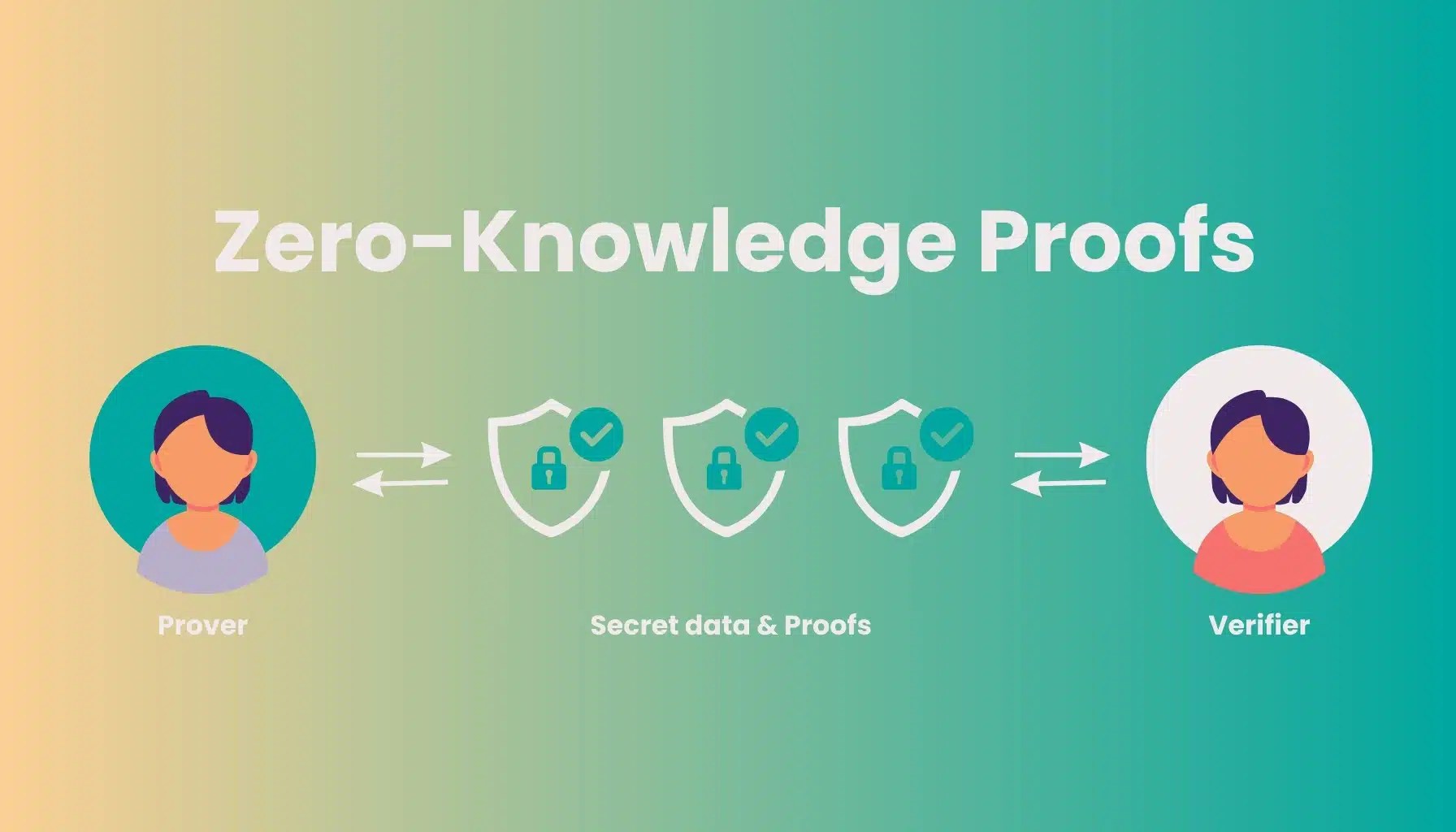“Zero-Knowledge Proofs: Unveiling Knowledge Without Revealing It
Related Articles Zero-Knowledge Proofs: Unveiling Knowledge Without Revealing It
- Token Sales: A Comprehensive Guide To Crowdfunding The Future
- Block Reward: The Backbone Of Cryptocurrency Mining
- The Siren’s Song: A Deep Dive Into The Starbucks Phenomenon
- Masternodes: A Deep Dive Into Their Role In Blockchain Networks
- Litecoin: A Deep Dive Into The Silver To Bitcoin’s Gold
Introduction
We will be happy to explore interesting topics related to Zero-Knowledge Proofs: Unveiling Knowledge Without Revealing It. Come on knit interesting information and provide new insights to readers.
Table of Content
Zero-Knowledge Proofs: Unveiling Knowledge Without Revealing It

In the realm of cryptography and computer science, zero-knowledge proofs (ZKPs) stand as a fascinating and powerful concept. They allow one party (the prover) to convince another party (the verifier) that a statement is true without revealing any information beyond the truth of the statement itself. This seemingly paradoxical feat has profound implications for security, privacy, and trust in digital systems.
The Essence of Zero-Knowledge
At its core, a zero-knowledge proof satisfies three fundamental properties:
- Completeness: If the statement is true, an honest prover can convince an honest verifier.
- Soundness: If the statement is false, no prover (even a malicious one) can convince an honest verifier, except with a negligible probability.
- Zero-Knowledge: The verifier learns nothing beyond the fact that the statement is true. In other words, the interaction between the prover and verifier does not reveal any secret information or knowledge held by the prover.
A Classic Analogy: Ali Baba’s Cave
The most widely used analogy to explain ZKPs is the story of Ali Baba’s Cave. Imagine a cave with a circular path, a locked door separating the two paths, and two entrances, A and B. Peggy (the prover) claims to know the secret word to open the door, but Victor (the verifier) wants to be sure without learning the word himself.
Here’s how the zero-knowledge protocol works:
- Peggy enters the cave through either entrance A or B.
- Victor waits outside and randomly calls out either "A" or "B."
- Peggy emerges from the entrance Victor called out.
If Peggy didn’t know the secret word, she would only have a 50% chance of emerging from the correct entrance. By repeating this process multiple times, Victor can become increasingly confident that Peggy knows the secret word without ever learning it himself.
Formalizing the Concept
While the Ali Baba’s Cave analogy provides an intuitive understanding, the formal definition of zero-knowledge proofs relies on computational complexity theory. The "zero-knowledge" property is typically defined using the concept of a simulator. A simulator is an algorithm that can generate a transcript of the interaction between the prover and verifier that is indistinguishable from a real interaction, without knowing the secret information.
If such a simulator exists, it means that the verifier could have generated the same transcript on their own, without interacting with the prover. Therefore, the verifier learns nothing new from the interaction.
Types of Zero-Knowledge Proofs
Zero-knowledge proofs can be broadly classified into two main categories:
-
Interactive Zero-Knowledge Proofs: These proofs involve a back-and-forth interaction between the prover and the verifier. The Ali Baba’s Cave example is an interactive proof.
-
Non-Interactive Zero-Knowledge Proofs (NIZK): In NIZK proofs, the prover can generate a proof that the verifier can verify without any interaction. NIZK proofs are often more practical for real-world applications because they don’t require the prover and verifier to be online simultaneously.
Applications of Zero-Knowledge Proofs
The unique properties of ZKPs make them valuable in a wide range of applications:
-
Authentication: ZKPs can be used to authenticate users without revealing their passwords or other sensitive credentials. For example, a user could prove that they know the correct password hash without actually sending the hash to the server.
-
Privacy-Preserving Data Sharing: ZKPs enable individuals or organizations to share data without revealing the underlying information. For instance, a hospital could prove that it has a certain number of patients with a specific condition without disclosing the identities of those patients.
-
Secure Voting: ZKPs can ensure that votes are counted correctly without revealing how individual voters cast their ballots.
-
Blockchain Technology: ZKPs are increasingly used in blockchain technology to enhance privacy and scalability. For example, they can be used to hide the sender, receiver, and amount in a transaction, while still allowing the transaction to be verified as valid.
-
Identity Management: ZKPs can allow individuals to prove attributes about themselves (e.g., age, citizenship) without revealing the underlying documents or data.
-
Secure Computation: ZKPs can be combined with other cryptographic techniques to enable secure multi-party computations, where multiple parties can jointly compute a function on their private inputs without revealing those inputs to each other.
Specific ZKP Techniques and Protocols
Several different techniques and protocols have been developed for constructing zero-knowledge proofs. Some of the most well-known include:
-
Sigma Protocols: These are a class of three-move interactive protocols that can be used to prove knowledge of a secret.
-
Fiat-Shamir Heuristic: This technique can be used to transform an interactive zero-knowledge proof into a non-interactive zero-knowledge proof.
-
zk-SNARKs (Zero-Knowledge Succinct Non-Interactive Argument of Knowledge): zk-SNARKs are a type of NIZK proof that are particularly efficient, both in terms of proof size and verification time. They are widely used in blockchain applications like Zcash.
-
zk-STARKs (Zero-Knowledge Scalable Transparent Argument of Knowledge): zk-STARKs are another type of NIZK proof that offer similar benefits to zk-SNARKs but rely on different cryptographic assumptions. They are also considered to be more transparent because they do not require a trusted setup.
Challenges and Future Directions
While ZKPs hold great promise, there are also challenges that need to be addressed:
-
Computational Cost: Generating and verifying ZKPs can be computationally expensive, especially for complex statements.
-
Complexity of Implementation: Implementing ZKPs can be complex and requires specialized expertise.
-
Trusted Setup: Some ZKP schemes, like zk-SNARKs, require a trusted setup phase to generate the cryptographic parameters used in the proof system. This trusted setup can be a potential vulnerability if the parameters are compromised.
-
Standardization: There is a lack of standardization in the field of ZKPs, which can make it difficult to integrate different ZKP systems.
Despite these challenges, research and development in ZKPs are rapidly advancing. Future directions include:
-
Improving Efficiency: Researchers are working on developing more efficient ZKP schemes that can be used in resource-constrained environments.
-
Developing New Applications: New applications of ZKPs are constantly being explored, particularly in areas like decentralized finance (DeFi) and privacy-preserving machine learning.
-
Addressing Trusted Setup Issues: Researchers are developing ZKP schemes that do not require a trusted setup, such as zk-STARKs.
-
Promoting Standardization: Efforts are underway to standardize ZKP protocols and APIs to make it easier to integrate ZKPs into different systems.
Conclusion
Zero-knowledge proofs are a remarkable cryptographic tool that enables proving the truth of a statement without revealing any additional information. Their unique properties make them valuable in a wide range of applications, from authentication and privacy-preserving data sharing to secure voting and blockchain technology. While challenges remain, ongoing research and development are paving the way for even more widespread adoption of ZKPs in the future. As digital systems become increasingly complex and data privacy becomes more critical, zero-knowledge proofs will play an increasingly important role in building secure, private, and trustworthy systems.

